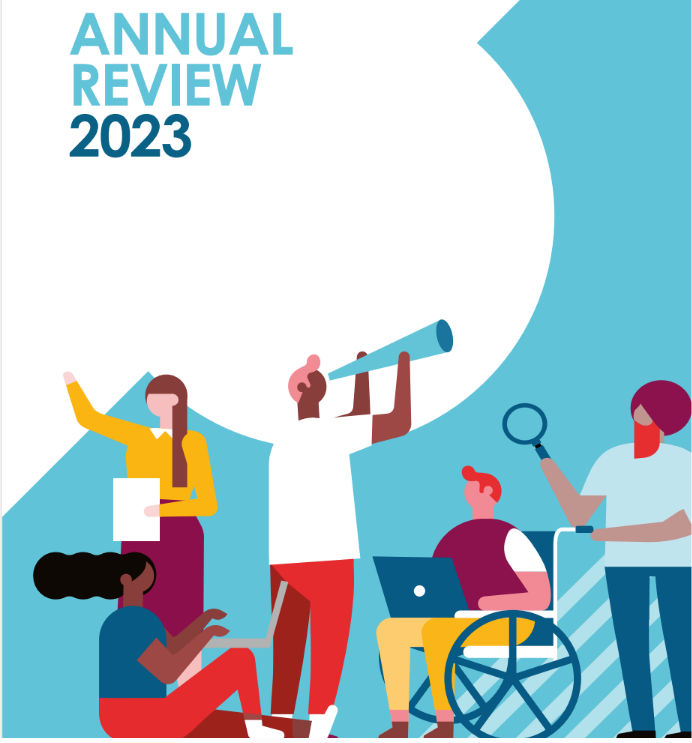- Where do you operate?
- What do you mean by “youth”?
- Why focus on youth unemployment?
- Why focus on ethnic disparities?
- What is Youth Futures Foundation connection to the government?
- How was Youth Futures Foundation created?
- What are dormant assets?
- Does Youth Futures Foundation award grants to charities?
Where do you operate?
Youth Futures Foundation is focused on reducing youth unemployment in England. The £90m of dormant assets money that was awarded to us by Government is restricted to England and a separate allocation of dormant assets money focused on youth services has been allocated to Scotland, Wales and Northern Ireland.
What do you mean by “youth”?
Our initial work is aimed at 14-24 year-olds who because of disadvantage and discrimination are furthest from the jobs market.
Why focus on youth unemployment?
When Youth Futures launched, youth unemployment was already too high, particularly for young people facing disadvantage or discrimination. Following the pandemic, the challenges have grown even greater, with a significant risk that a generation’s future will be blighted by the scarring effects of long-term unemployment on their mental and physical health, future employment prospects and earning potential.
Young people – especially those from marginalised backgrounds – are more vulnerable to unemployment. Research carried out by the Institute for Employment Studies (IES) found that young people account for almost half (46%) of the total fall in employment during the pandemic.
Despite this, there is less available evidence on how to support unemployed young people into work than exists for older people. We intend to fix this.
Why focus on ethnic disparities?
The government’s Race Disparity Audit data shows there are big disparities in NEET rates between young people from different ethnic groups, even if they have similar qualifications. The data shows that the unemployment rate for young people from an ethnic minority background is stubbornly nearly double the average. Currently, the fall in employment is four times higher for young Black people and nearly three times higher for young Asian people.
Youth Futures is committed to ensuring all young people have fair access to good quality jobs.
What is Youth Futures Foundation connection to the government?
Youth Futures Foundation is an independent UK company established in response to the government’s commitment to allocate £90m of dormant asset funding to youth opportunities. Youth Futures is an independent organisation, with its own board and the ability and remit to set its own strategy.
How was Youth Futures Foundation created?
In January 2018, the Government announced that £90 million from dormant bank and building society accounts would fund projects to support young people furthest from the labour market into employment. Youth Futures Foundation was established in response to this.
You can read more in the statement of intent published in March 2018.
Government’s Civil Society Strategy published in summer 2018, (p43, “helping the most disadvantaged young people”) announced that, following a consultation exercise to determine the best way to deploy the funding, a new organisation would be created, independent from government.
What are dormant assets?
In the UK, dormant asset are defined as money from bank accounts which the customer has not touched the account for 15 years or more and where banks have been unable to contact those customers.
The Dormant Bank and Building Society Accounts Act (2008) enables banks and building societies to voluntarily transfer money held in dormant accounts to the Reclaim Fund Ltd (RFL). Any spending of dormant assets funding needs to have a well-defined social purpose.
In addition, in England, expenditure must be directed to either youth, financial inclusion or social investment. So far over £1.2bn have been transferred to RFL, with over £600m passed on the Big Lottery Fund to distribute to good causes across the UK.
Does Youth Futures Foundation award grants to charities?
In March 2020 we launched our Development and Impact grants programme, designed to find, support and evaluate promising practice that demonstrates ‘what works’ in improving labour market outcomes for young people from marginalised backgrounds. When Covid-19 hit we recognised the potential impact on youth employment and moved quickly to make additional resilience funding available to frontline community organisations and the infrastructure bodies that support them.
In 2020, we awarded £15.2million to 140 charities and social enterprises supporting young people towards employment via our ‘what works’ programme, Infrastructure grants and our partnership with BBC Children in Need.

